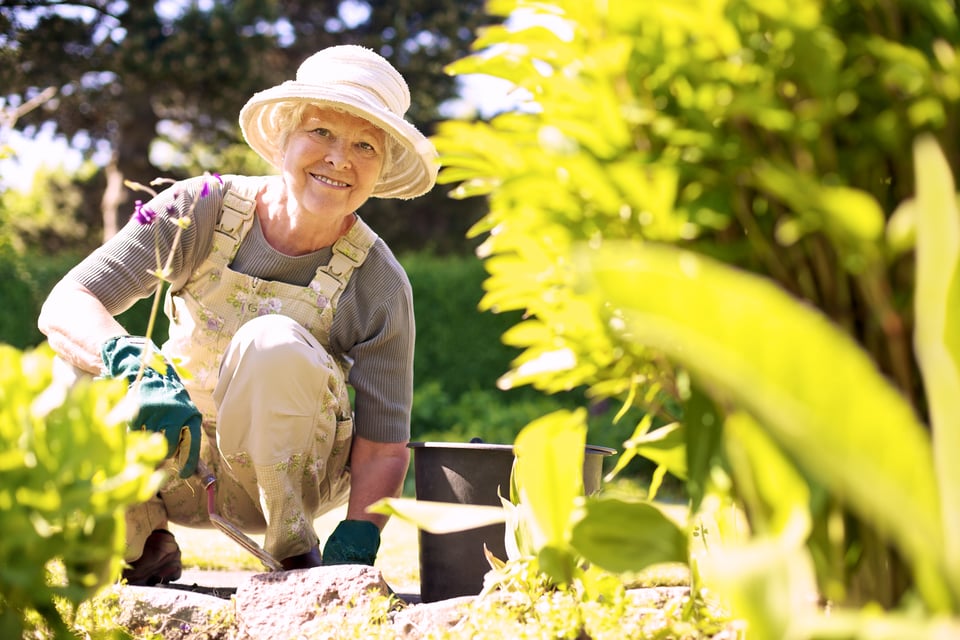If you are retired or working part-time, you may find yourself with more free time than you’ve had in a while. This makes it a perfect time to develop or revisit an interest, activity, or passion project.
In this blog post, we suggest nine meaningful activities that extend beyond “hobbies” in enhancing your sense of purpose and meaning.
Finding the Right Activity
According to the National Institute on Aging, older adults can benefit from engaging in meaningful activities. Some benefits include:
- A reduced risk of developing health problems
- A longer lifespan
- Enhanced feelings of happiness
- Better health
- A greater sense of self-efficacy
- Increased resilience in the face of adversity and stress
- Improved memory, comprehension, creativity, and problem-solving skills
To find the right activity, ask yourself:
- Do I prefer solo activities over group activities, or vice versa?
- Can I re-involve myself in an activity that interested me in the past?
- Can I try something I’ve always wanted to try but haven’t been able to because of time constraints?
With answers to a few or all of the questions, consider the following activities:
9 Fun and Easy-to-Start Activities
Of course, the following list of activities is not comprehensive. Some might seem like the exact fit for your current interests, whereas others might spark inspiration to try something new.
1. Take a cooking class.
Have you ever wondered what makes your favorite marinara sauce taste so good? Or been curious about the blend of spices in an Indian dish? Consider taking a cooking class. You can learn new recipes, cooking techniques, and the “science” behind a meal.
Alternatively, buy a cookbook by a famous or favorite chef and show off by making a new recipe for friends and family.
2. Start writing.
Writing provides an opportunity to clear the mind, put life events into perspective, and more. You can write a poem or fictional or non-fictional story, or simply keep a journal.
Although writing is often a solitary activity, you can form a writing group with friends or local writers to share work and provide feedback. You can also find a community by taking a writing class at a nearby college or university.
3. Take classes at a local community college or university.
Speaking of taking a class: Was there a subject you were interested in during college but didn’t have the chance to study? Or a new topic that you would like to know more about?
Take a course at a local college. It’s a great way to engage with fascinating topics and converse with like-minded people. Some colleges and universities allow older adults to audit classes free of charge.
4. Engage with visual and creative arts.
Whether it's painting, photography, pottery, origami, calligraphy, crocheting, or knitting, creating art is a great way to express yourself. These activities also have many practical benefits, improving your cognitive function, memory, and overall quality of life.
If you’re interested in taking a class, local community colleges and universities aren’t your only options. Most cities have private studios that offer engaging and diverse curriculums for adults.
5. Open a small online shop.
Do you make handmade items, such as pottery or paintings? Do you have vintage items or craft supplies that you no longer need? You might consider opening a small online shop.
Once you have your products and prices, you will need to use a platform to sell your products. Many options are available to online-only sellers. For example, you can create a domain or set up a shop on an e-commerce platform. Wix is popular for smaller stores, and Big Cartel is favored by independent artists.
6. Play sports or try a fitness activity.
Staying physically active can help you combat health risks, including obesity and heart disease.
If you want fun ways to stay active, consider participating in a sport, such as golfing, boxing, swimming, squash, or pickleball. Or if you’re less interested in games, consider making a habit of walking local trails, going for bike rides, or staying flexible with yoga classes every week.
7. Start gardening.
Evidence suggests that exposure to plants and green space improves mental and physical health. One way to gain these benefits is by gardening, which combines:
- Physical activity
- Social interaction
- Exposure to sunlight (which can lower blood pressure)
- Access to fresh fruits and vegetables
Plus, you can feel secure that your vegetables haven’t been sprayed with pesticides and that their carbon footprint is essentially zero because they aren’t traveling from a distant location.
8. Become a citizen scientist.
You might be wondering, “what is a citizen scientist?” A citizen scientist is someone who volunteers to conduct scientific research. Universities and independent research organizations always need assistance collecting data on the environment.
Citizen scientists can contribute by designing experiments, collecting data, analyzing results, and solving problems. With access to a computer or smartphone, you can engage in this fascinating hobby.
9. Learn a new language and travel.
Have you ever wanted to travel to another country but felt held back because you didn’t speak the language? These days, learning a new language has never been easier through apps such as Duolingo and Babbel.
Live an Active Life at a WesleyLife Community
At WesleyLife, we believe that everyone should have the opportunity to live a life of continued experience, engagement, and meaning. Independent living means exactly that — independence. Take new classes, explore new passions, or travel and leave the home maintenance and upkeep behind.
Not sure if a senior living community is right for you? Take our senior living assessment to find out.





